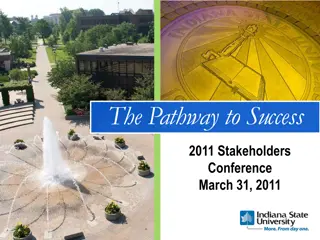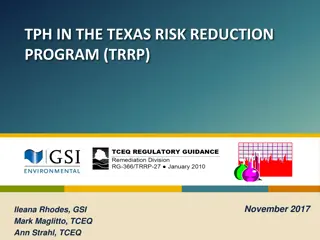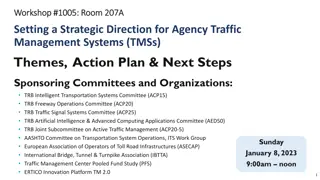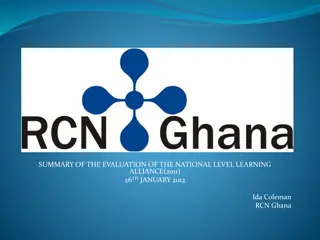
Oregon HIE Legal and Policy Workgroup Summary October 2011
Stay up-to-date with the latest developments from Oregon's Health Information Exchange (HIE) Legal and Policy Workgroup. Get insights on consent rules, proposed CLIA changes, and feedback on participation agreements. Explore the evolving landscape of consent management technology and its implications for healthcare data sharing in Oregon.
Download Presentation

Please find below an Image/Link to download the presentation.
The content on the website is provided AS IS for your information and personal use only. It may not be sold, licensed, or shared on other websites without obtaining consent from the author. If you encounter any issues during the download, it is possible that the publisher has removed the file from their server.
You are allowed to download the files provided on this website for personal or commercial use, subject to the condition that they are used lawfully. All files are the property of their respective owners.
The content on the website is provided AS IS for your information and personal use only. It may not be sold, licensed, or shared on other websites without obtaining consent from the author.
E N D
Presentation Transcript
Legal & Policy Workgroup October 5, 2011 RFP for HIE technology services vendor underway OHIT collaborating on CCO development Status update: administrative rules tabled Legal & Policy Workgroup feedback on process moving forward Summary of proposed changes and implications for HIE and labs in Oregon Feedback from Legal & Policy Workgroup Status Update Process moving forward
Obtain workgroup feedback on 1. Process for moving forward with consent rules 2. Proposed changes to CLIA and any related policy needs 3. Feedback on sample participation agreement and process for completion
Updates from the Office of Health IT (OHIT) 1. RFP for HIE technology services vendor underway 2. OHIT collaborating on CCO development
OARs for Consent Policy Status update: the proposed rules to implement the opt-out consent policy were tabled per the Sept. 8 vote by HITOC Considerations taken into account: Public comment during the OAR process indicated more time and engagement are needed to better understand the complexities of implementation Need to align efforts with CCO development work Phased approach to HIE beginning with Direct secure email allows more time to develop the consent rules for a more robust, query-based HIE environment Consent management technology and solutions are still evolving nationally
OARs for Consent Policy: Questions and Issues Identified through the Public Comment Process Are all EHR/HIE systems currently in place technologically capable of applying a patient s decision to opt out? Which systems may have technical difficulty achieving this, and how prevalent is the use of these systems? What is the developmental status of technical solutions for consent management in the national marketplace? What is the most administratively efficient and effective method(s) for implementing informed opt out? Which types of providers, entities, data-sharing relationships, and/or types of HIE should be subject to the rule? For example: Providers within IDNs/hospital systems/HIOs versus between them Direct Project-based secure email versus repository/query models of HIE
OARs for Consent Policy: Process for Moving Forward Subcommittee of the Legal & Policy Workgroup? Additional expertise needed? Regularly scheduled meetings to review and offer feedback on progressive drafts? How frequently should the meetings take place?- Monthly?
Notice of Proposed Rule Making for CLIA and HIPAA CLIA = Clinical Laboratory Improvement Amendments of 1988 Status quo: HIPAA: establishes a right of access for patients to their own medical records, but has an exception to this access right for CLIA-certified or CLIA- exempt labs CLIA: limits a lab s disclosure of test results to 3 categories of individuals: 1. Person responsible for using the test results in a treatment context 2. A referring lab 3. An authorized person as defined by state law Usually includes the ordering provider. Some states laws also include the patient in the definition of an authorized person to receive test results directly from the lab; some states laws do not permit this
Notice of Proposed Rule Making for CLIA and HIPAA Proposed changes: To HIPAA: Remove the exemption for CLIA-certified and CLIA-exempt labs with respect to providing individuals access to their protected health information To CLIA: Would allow a laboratory to provide patients with access to test reports when the laboratory can authenticate that the test report pertains to the patient. Combined effect: Labs would be required to provide patients with their test reports if the patient requested them, and if the lab could authenticate the identity of the patient.
Notice of Proposed Rule Making for CLIA and HIPAA Feedback sought from Legal & Policy Workgroup: Do you foresee any policy issues or needs arising out of: 1. Patients receiving and potentially interpreting their own lab test results 2. Lab compliance with the requirement to release results directly to patients 3. Labs, providers, and patients becoming informed about any changes
HIE Participation Agreement Last update: Initial draft created by subcommittee of Legal & Policy Workgroup led by Bob Thomson; based on Washington s OneHealthPort agreement Current status: Since the creation of the first draft, several agreements have been finalized and made available from other states that were developed specifically for Direct messaging services- may be more applicable in the Oregon context
HIE Participation Agreement Process for completion of Oregon s HIE Participation Agreement: Tasks: 1. The Direct agreements need to be analyzed for usefulness/ appropriateness; 2. The current draft agreement needs to be modified to incorporate Direct-specific components and language; 3. The target date for the agreement to be finalized is Jan. 1, 2012. Who should be involved in that process? What should the process consist of? Any feedback from Workgroup on the Florida agreement?






















